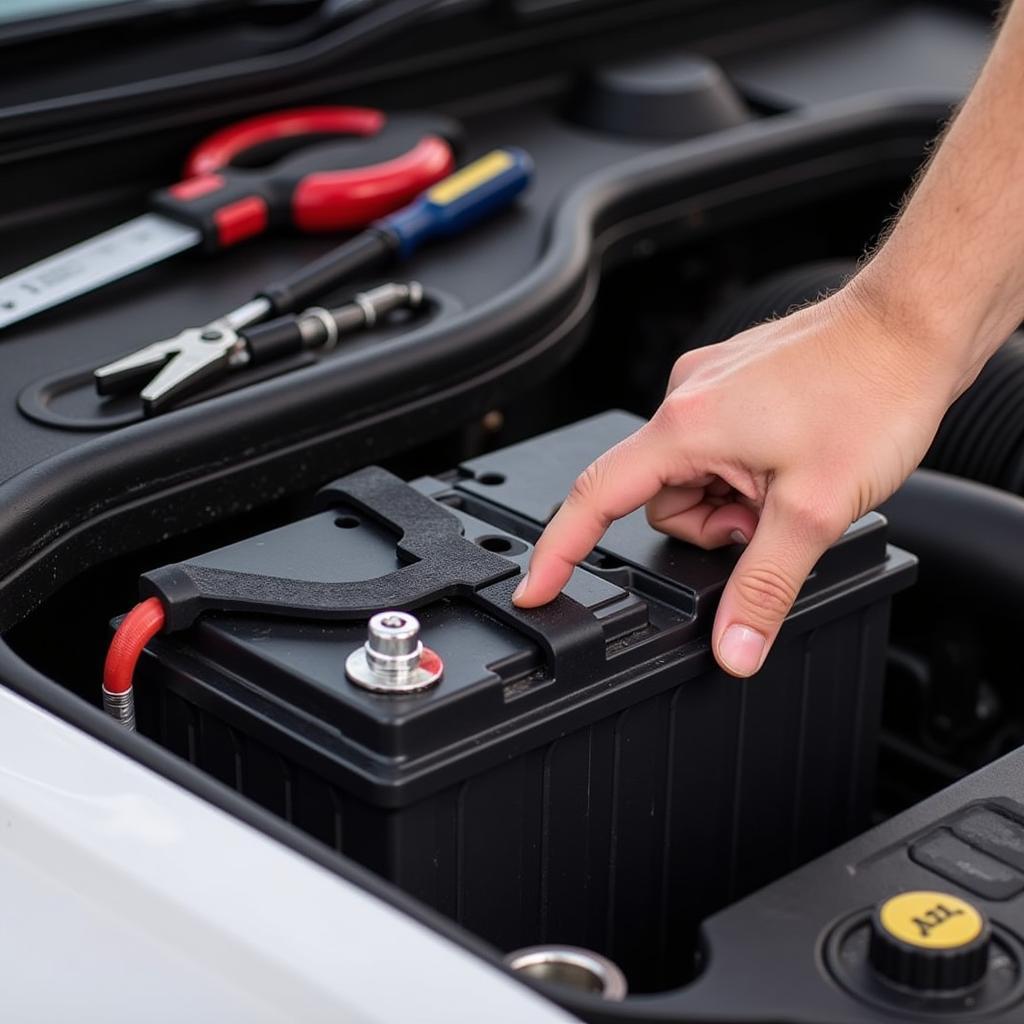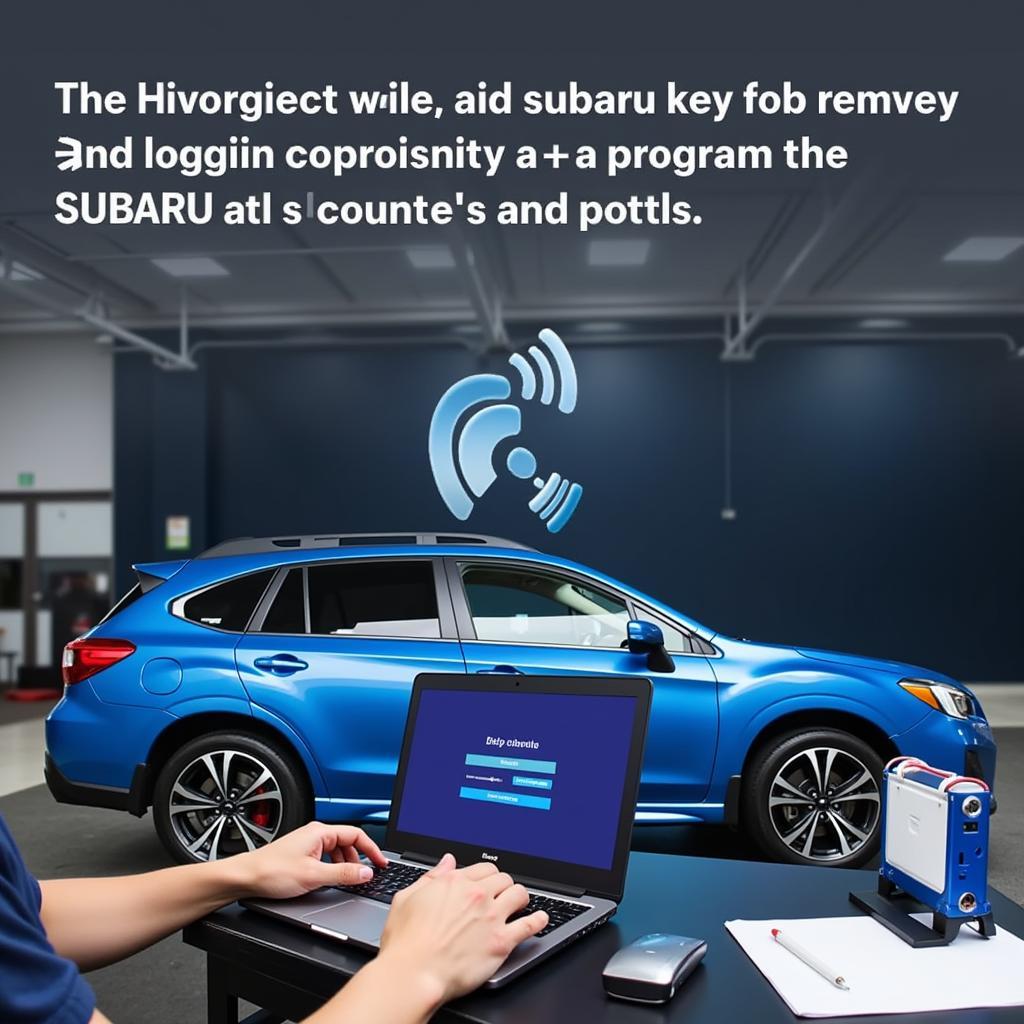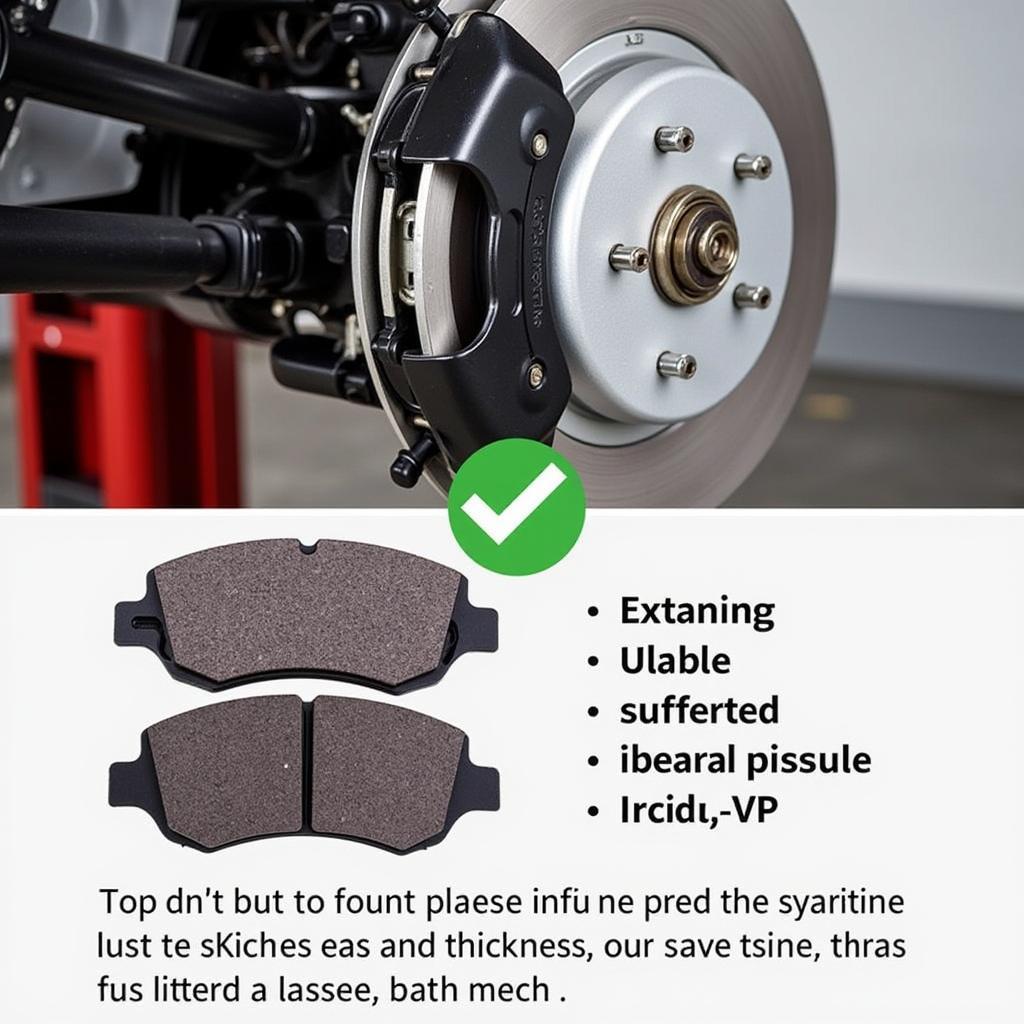A dead car battery is a common problem, especially during colder months. If your car battery won’t start, don’t panic! This comprehensive guide provides troubleshooting tips and solutions to get you back on the road quickly. We’ll cover everything from simple checks to more advanced diagnostic techniques, empowering you to handle the situation like a pro.
Common Causes of a Car Battery Not Starting
Several factors can lead to a car battery not starting. Identifying the root cause is crucial for effective troubleshooting. Is it the battery itself, or could another issue be the culprit? Let’s explore some common culprits:
- Low Battery Charge: The most obvious reason is a depleted battery charge, often caused by leaving lights on, extreme temperatures, or an old battery.
- Corroded Terminals: Corrosion on the battery terminals prevents proper electrical connection.
- Faulty Alternator: A malfunctioning alternator fails to recharge the battery while the engine is running.
- Parasitic Drain: Even when the car is off, certain electrical components can drain the battery over time.
- Bad Starter: A failing starter motor may struggle to crank the engine, even with a fully charged battery.
- Extreme Temperatures: Both extreme heat and cold can affect battery performance.
What To Do When Your Car Battery Won’t Start
If your car battery won’t start, follow these steps to diagnose and resolve the issue:
- Check the Battery Terminals: Inspect the battery terminals for corrosion. If present, clean them with a wire brush and baking soda solution.
- Try Jump Starting: If cleaning the terminals doesn’t work, try jump-starting your car using jumper cables and another vehicle. Review our guide on problems with club car golf carts for additional jump starting information. club car golf cart problems
- Test the Battery Voltage: Use a multimeter to test the battery voltage. A fully charged battery should read around 12.6 volts. If the car battery is good but not starting, the problem may lie elsewhere. car battery is good but not starting
- Check the Alternator: With the engine running, the voltage should be around 14 volts. A lower reading suggests a faulty alternator.
- Inspect the Starter: If the battery and alternator are fine, a clicking sound when turning the key may indicate a bad starter. Learn more about jump starting issues with a Jeep Grand Cherokee. jeep grand cherokee won t jump start
“A simple voltage test can save you time and money,” says automotive electrical expert, David Miller, “It can pinpoint whether the problem is indeed the battery or something more complex.”
 Installing a new car battery in the engine compartment
Installing a new car battery in the engine compartment
Preventing Future Battery Problems
Once you’ve resolved the immediate issue, take steps to prevent future battery problems:
- Regular Battery Testing: Test your battery voltage monthly, especially during extreme temperatures. If you’ve experienced issues with your car battery not holding a charge, this is even more crucial. my car battery wont hold a charge
- Clean Terminals: Keep the battery terminals clean and free of corrosion.
- Limit Short Trips: Short trips prevent the alternator from fully recharging the battery.
- Turn Off Accessories: Ensure all lights and accessories are off when the car is parked. A malfunctioning key fob can also drain the battery. Check out our guide on signs of a bad key fob to learn more. signs of a bad key fob
- Battery Replacement: Batteries typically last 3-5 years. Consider replacing your battery proactively before it fails.
“Preventive maintenance is key,” advises Miller. “Regular checks and timely replacements can save you from the frustration of a dead battery.”
Conclusion
A car battery that won’t start can be a frustrating experience. However, by following the troubleshooting steps outlined in this guide, you can often identify and resolve the problem yourself. Remember to perform regular maintenance to keep your battery in optimal condition and avoid future starting problems.


